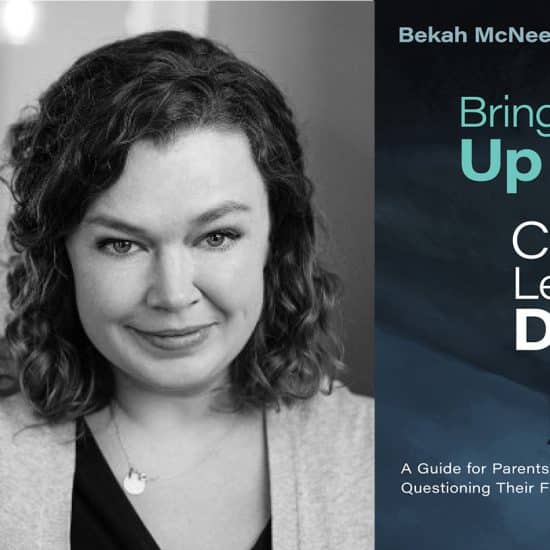NASHVILLE, Tenn. (BP) — The vast majority of parents hope their children grow up to live good lives. But, for many, parental success does not include faith in God — even among parents who are evangelical Christians, according to a new study from LifeWay Research.
 |
The national survey of 1,200 adults with children under 18 at home found the most common definitions of successful parenting include children having good values at 25 percent, being happy adults at 25 percent, finding success in life at 22 percent, being a good person at 19 percent, graduating from college at 17 percent and living independently at 15 percent. Being godly or having faith in God is mentioned by 9 percent of respondents.
Parents who attend religious services weekly particularly are likely to emphasize faith in God, but only 24 percent of them identify that as a mark of parenting success, the research found.
“We are seeing an ever-widening gulf in American believers between private faith and a faith that is passed on,” said Scott McConnell, associate director of LifeWay Research. “Instead, we too often see an emphasis on guiding children to a social morality and toward an as-yet undefined ‘happy’ life.”
While the vast majority — 83 percent — believes parents should be most responsible for a child’s spiritual development, only 35 percent say their religious faith is one of the most important influences on their parenting, according to the study. This leaves nearly half — 48 percent — who acknowledge their role in their child’s spiritual development, but fail to consider their own religious faith among the most important influences on their parenting.
Pushing out to either end of the religious spectrum, the study found almost a third of all parents either have no religious faith or say religious faith has little or no influence on their parenting. Conversely, among born-again Christians, 29 percent say faith is not among the most important influences on their parenting.
“When self-identifying Christians are not able to say that faith is a priority for parenting, we should not be surprised at the prevalence of church dropouts in the younger generation,” said Ed Stetzer, director of LifeWay Research.
Asked if they have a written plan or goal for what they want to accomplish as parents, 33 percent say they have no plan or goal at all. Among those who attend religious services weekly and evangelicals, 76 percent say they have a plan, either written or unwritten.
In contrast to visions of success, many parents are fearful for their children’s futures and some harbor regrets about their parenting, according to the research. Eighty-two percent agree they feel fearful when they think about what kind of world their children will face as adults. Asked if they feel a lot of regret about what they’ve done as parents, 28 percent of parents agree, although only 5 percent feel strongly about it.
Six out of 10 parents indicate they want their children to experience pain and disappointment so they can learn from it, but about three in four parents say they try to keep their own pain hidden from their children.
One in three parents — 34 percent — say they worry when they think about their children “leaving the nest.” Fifteen percent say the prospect of their children growing up and leaving home is simply too painful to think about.
Only 14 percent of all parents say they feel they are very familiar with what the Bible has to say about parenting, even though 77 percent identify themselves as Christians. Among those who attend religious services weekly, that number rises to 36 percent.
“One of parents’ ultimate responsibilities is to prepare their children for adulthood,” McConnell said. “This study may hint at why many young adults are spiritually underdeveloped — their parents have given little focus to matters of faith.”
Mark Kelly writes for Lifeway Christian Resources.






